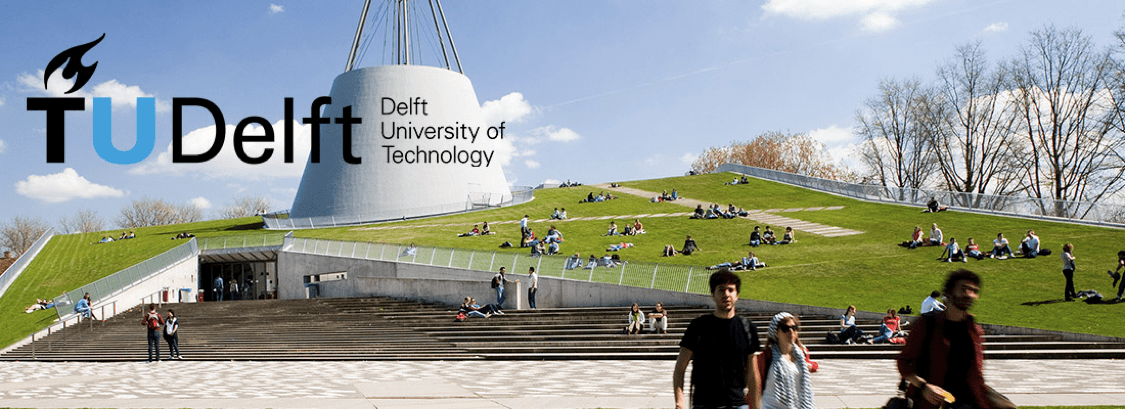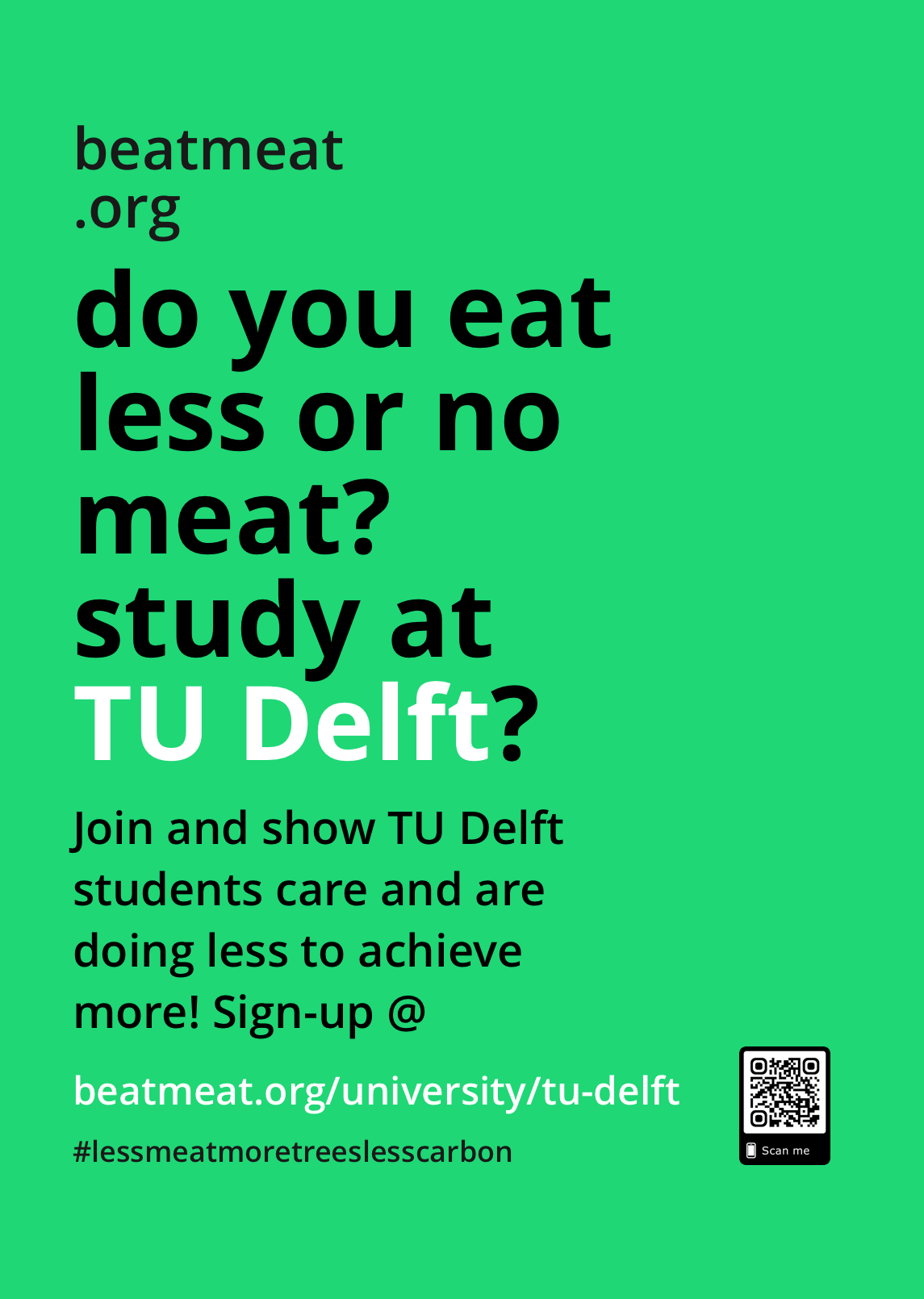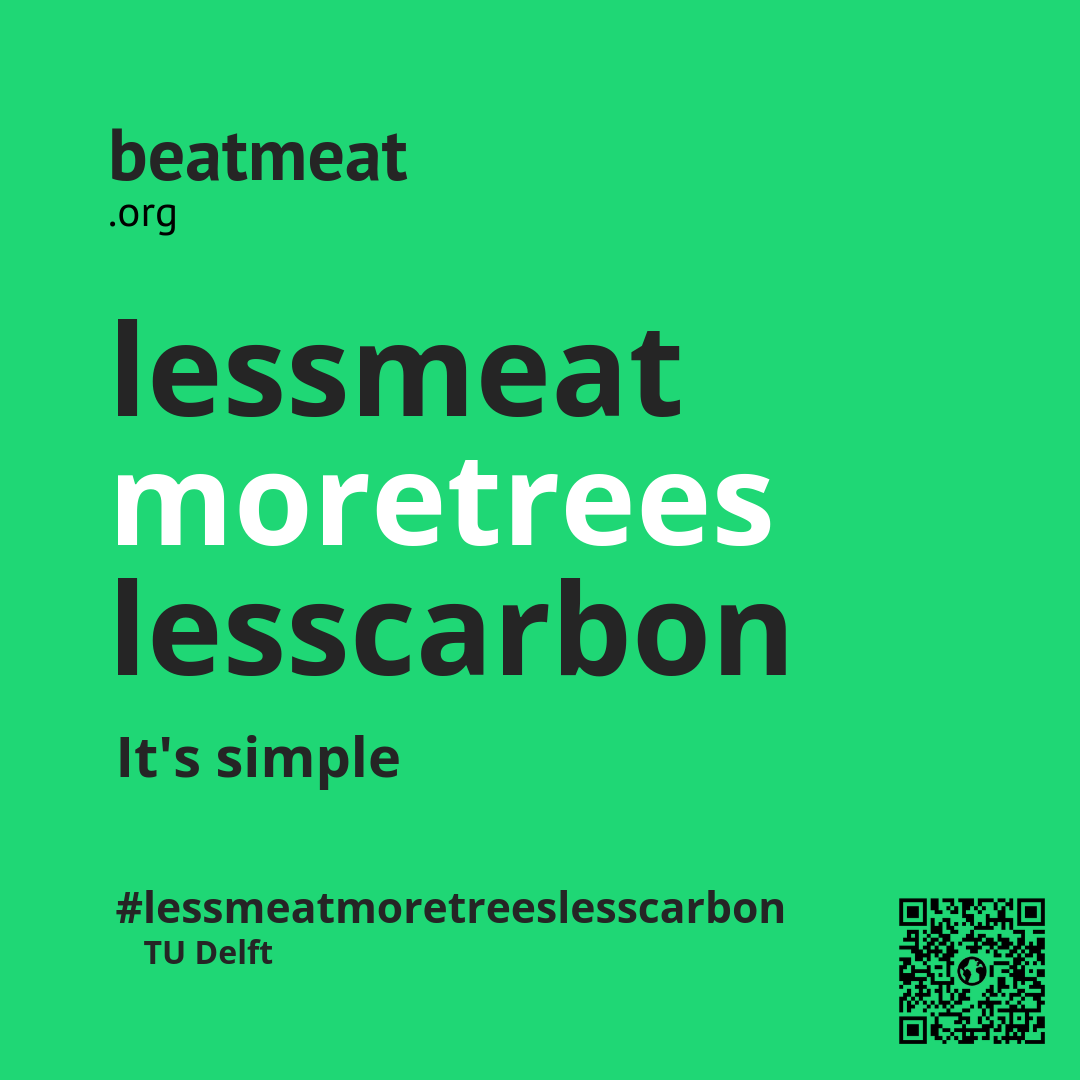beatmeat.org
TU Delft
2 TU Delft students already saved over 587 kg carbon just by eating less meat on a daily basis. Can 20% save 20%?

image by TU Delft
2 / 23,000+ students do
Students
Number : 2
girls : 1
guys : 1
flexitarians : 1
vegetarians : 1
average age : 23
Meat
days no meat : 12
days yes meat : 2
meat saved weekly : 1 kg.
meat consumed weekly : 0 kg.
meat saved yearly : 70 kg.
meat consumed yearly: 12 kg.
Carbon
carbon saved weekly : 18 kg.
carbon added weekly : kg.
carbon saved yearly : 587 kg.
carbon saved yearly : 507 kg.
20/20 Challenge
Uniting all TU Delft students eating less or no meat & saving carbon emissions, land and water usage for growing crops. Imagine 20% of the world reducing it's footprint with 20%. That's our goal, that's real impact. But it starts with you, join if you eat less or no meat!
Data input
Students : 25.000
50% Eats less meat : 12.500
7% Eats no meat : 1.750
Meat : 105.300.000 kg
Carbon :1.400.490.000kg
Land: 937.170.000 m2
Water : 13.689.000.000 l
Data source here.
20% Goals
Students : 5.000
Meat : 21.060.000 kg
Carbon :280.098.000 kg
Land: 187.434.000 m2
Water : 2.737.800.000 l
logic thinking
Build the community.
Use one our pics
Use the #tag
Click to copy
& share with your friends & networks.
live from instagram
#lessmeatmoretreeslesscarbon
TU Delft less meat eaters
Student
7.0
days
nomeat
Kirsten van Lienden
-345.5 kg carbon
Student
4.9
days
nomeat









